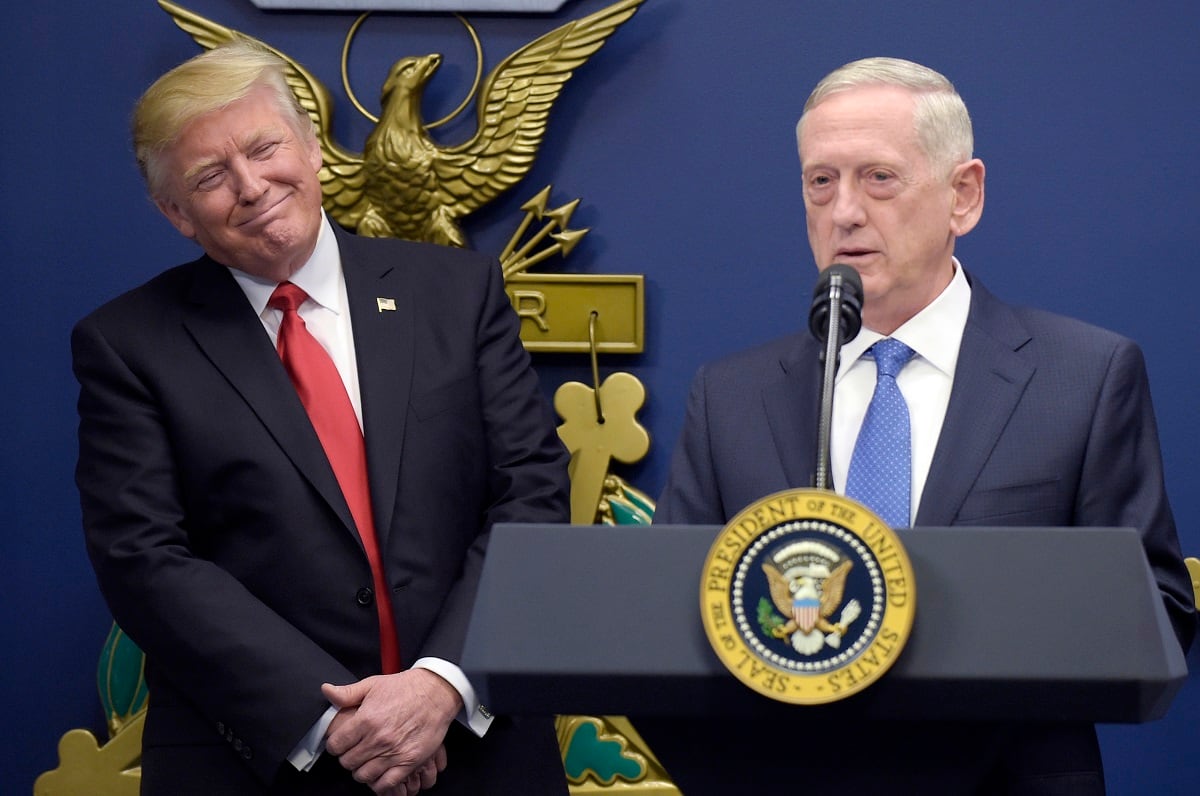WASHINGTON — The American defense industry is warning that defense cuts proposed by the Trump administration could undermine the Pentagon’s efforts to modernize the military and address threats from Russia, China, Iran, North Korea and transnational terrorism.
The Aerospace Industries Association, with the weight of the country’s large and small defense firms behind it, issued a statement Thursday warning President Donald Trump and Congress “to provide steady and stable growth in defense spending in the fiscal year 2020 budget request and beyond” if they want to be able to meet those threats.
The message comes as Democrats — expected to prioritize domestic spending and question record defense increases — won the House this week, and after White House budget director Mick Mulvaney ordered the Pentagon to prepare for a $700 billion national defense budget proposal for fiscal 2020. (For comparison’s sake, the Pentagon is also continuing to prep the $733 billion budget it was expecting.)
AIA argued in its statement that the last two years of budget growth have helped the Department of Defense and industry turn things around after years of war and budget instability, but not entirely.
“As a result, military readiness is improving, and our industry is responding with more innovation and advanced capabilities,” the statement reads. “But the shortfalls of the last decade cannot be erased in the space of two years, and now the Administration has announced potential reductions in defense investment that could undermine the improvements that are just now materializing.”
RELATED

Last year, Defense Secretary Jim Mattis testified that the Pentagon needed 3 to 5 percent annual growth above inflation through 2023 to stay ahead of near-peer adversaries Russia and China. Congress responded with a $700 billion national defense budget for 2018 and $716 billion for 2019 — but also a $1 trillion tax cut that’s grown the national deficit.
National security adviser John Bolton said publicly, days before Tuesday’s election, that the national debt is “an existential threat to society” and that Pentagon spending will have to “flatten out” in the near term.
Deputy Secretary of Defense Patrick Shanahan had signaled in recent weeks that modernization programs like hypersonic weapons systems would take a hit if the budget falls. “It comes down to a judgment call, how fast do we modernize? And that’s probably the biggest knob that we have to turn,” he said.
Along similar lines, AIA argued that to achieve the Pentagon’s National Defense Strategy — which "requires armed forces that are large and capable enough to meet multiple threats in multiple environments” — “we must continue to invest in the most effective technology and weapons we can provide.”
“America’s competitors and adversaries have made huge strides in their offensive and defensive capabilities, from submarines to cyberspace, and continue to develop advanced technology and sophisticated operational concepts,” the statement warns.
Though it’s unclear how sensitive the administration will be to this call, it has been vocal about its focus on the defense-industrial base in concert with Trump’s emphasis on the American economy. A Trump-ordered study found roughly 300 gaps and vulnerabilities across America’s network of defense suppliers; Pentagon officials are hopeful a third of those issues will be addressed in the next year.
Whatever the administration does with its budget submission, it will be up to the new Congress to tweak it. Following the midterm elections, analysts have predicted lawmakers in next year’s divided government will overcome gridlock to reach a budget deal that maintains flat defense spending.
Joe Gould was the senior Pentagon reporter for Defense News, covering the intersection of national security policy, politics and the defense industry. He had previously served as Congress reporter.
Aaron Mehta was deputy editor and senior Pentagon correspondent for Defense News, covering policy, strategy and acquisition at the highest levels of the Defense Department and its international partners.








